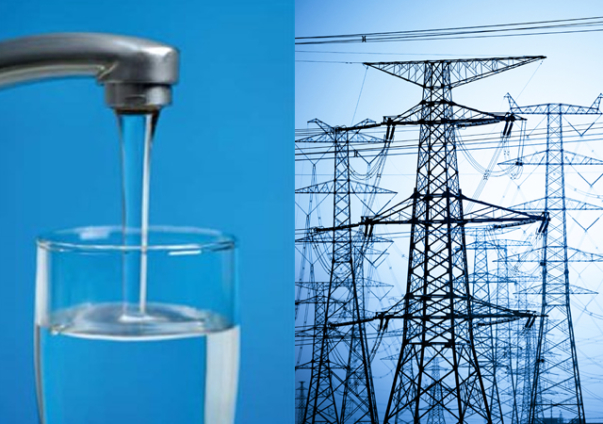Ghanaians may have to brace themselves to pay more for utility as tariffs are expected to increase.
According to a report by Daily Graphic, the upward adjustment of bills, once announced, will take effect on Thursday, September 1.
This will be the first review of utility tariffs since 2017.
This comes after the Public Utilities Regulatory Commission (PURC) had carried out nationwide consultations on proposals it received from the utility companies.
Daily Graphic reported that the new tariffs will not be across the board, which means the rates will depend on the reasons and proofs adduced by the utilities and the verification the commission has done.
It said the tariffs to be announced would exclude taxes and levies already imposed by the state.
The report also revealed that micro, small and medium enterprises (MSMEs), such as food joints and salons, would be protected from paying “punitive” tariffs.
In May 2022, the Electricity Company of Ghana (ECG) demanded a 148% increase in tariff.
The proposal from the power distributor, submitted to the PURC, wanted the adjustment to cover the period 2019 and 2022.
The company also proposed an average increase of 7.6% in tariff over the next four years to cover Distribution Service Charges (DSC).
On its part, the Ghana Water Company Limited (GWCL) also demanded a 334% increase in tariff. The GWCL in its proposal said over the years, the approved tariffs have not been fully cost-reflective.
The Volta River Authority (VRA) has also proposed 37%, with the Ghana Grid Company Ltd (GRIDCo) proposing 48%
Other proposals were 38% from the only private power distributor, Enclave Power, and 113% increase over the existing tariffs of the Northern Electricity Distribution Company (NEDCo).
Meanwhile, after receiving the proposals from the utility companies, the PURC conducted a survey in which 851 respondents across all 16 regions completed the questionnaire.
The survey indicated that 44% of respondents thought the current electricity tariffs were not proportionate with quality of service received from the electricity utilities.
They based their reason on the frequent voltage fluctuation and poor customer service delivery among other reasons.
On electricity tariffs, 42% of the respondents rated prevailing tariffs as fair, while 55% rated them as high.
Again, half of the respondents indicated that current water tariffs were not justified, given the poor service delivery in the form of frequent water supply interruptions.
Consequently, 41% of respondents rated prevailing water tariffs as fair, while 57% rated them as high.
Latest Stories
-
Queenmother calls on President-elect Mahama to appoint more women in his government
53 minutes -
Atletico Madrid beat Barcelona to go top of La Liga
1 hour -
Usyk breaks Fury’s heart with points win in rematch
1 hour -
Ghana-Russia Centre to run Russian language courses in Ghana
7 hours -
The Hidden Costs of Hunger: How food insecurity undermines mental and physical health in the U.S.
7 hours -
18plus4NDC marks 3rd anniversary with victory celebration in Accra
10 hours -
CREMA workshop highlights collaborative efforts to sustain Akata Lagoon
10 hours -
2024/25 Ghana League: Heart of Lions remain top with win over Basake Holy Stars
11 hours -
Black Queens: Nora Hauptle shares cryptic WAFCON preparation message amid future uncertainty
11 hours -
Re-declaration of parliamentary results affront to our democracy – Joyce Bawah
12 hours -
GPL 2024/25: Vision FC score late to deny Young Apostles third home win
12 hours -
Enhancing community initiatives for coastal resilience: Insights from Keta Lagoon Complex Ramsar Site Workshop
12 hours -
Family Health University College earns a Presidential Charter
12 hours -
GPL 2024/25: Bibiani GoldStars beat Nsoatreman to keep title race alive
12 hours -
GPL 2024/25 Bechem United keep title hopes alive with narrow win over FC Samartex
12 hours

